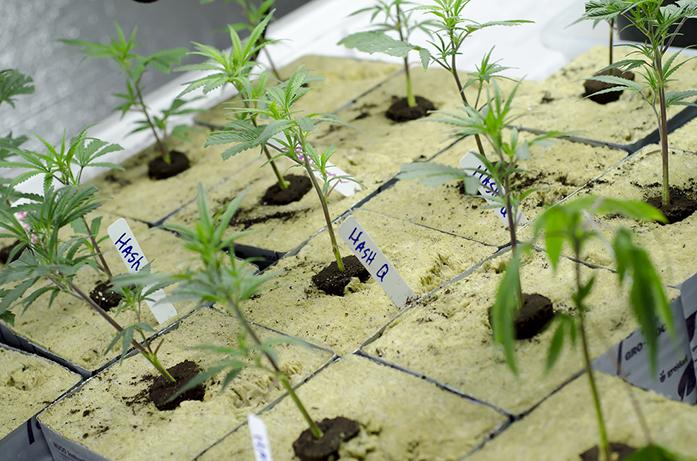Jace Brady
[email protected]
Editor’s note: This column is a part of today’s drug issue.
The Drug Enforcement Administration has recently undertaken an endeavor that will potentially lead to essentially decriminalizing marijuana. Since 1970, marijuana has been listed as a Schedule 1 controlled substance. Among the other drugs on this list are LSD and heroin, and they are considered by the federal government to have no medicinal value and have the highest risk for addiction. After 46 years of unnecessary criminal charges, billions in tax dollars spent on incarcerations and a bizarre federal vendetta, the DEA is finally considering lowering the drug classification of marijuana.
While this move by the DEA won’t lead to pot shops in Iowa City, it will be an admission by the government that marijuana has medicinal value. A recent Des Moines Register poll shows that a majority of Iowans support the medical use of marijuana, and significant research suggests it can treat everything from epilepsy to nausea. Currently, Iowans are permitted to use cannabidiol for medicinal purposes but are required to drive to neighboring states to purchase it. A DEA decision to lower marijuana to Schedule 2 would be a critical move in easing the suffering of Iowans.
Despite a move to Schedule 2 being much more likely, a move to Schedule 3 is a necessary move that would expedite the seemingly inevitable pass to full legalization. This move would essentially decriminalize marijuana and could potentially lead to the release of millions of criminals who are in prison for little more than having a few ounces of a dried up plant in their pockets.
Either one of these moves would be a defining moment in American history and will lead to a cascade that ends in legalization. Even a drop to Schedule 2 would significantly reduce the red tape that currently inhibits cannabis research. As researchers continue to publish the potential benefits of marijuana and the minimal ramifications, legalization will be inescapable.
Colorado has been the poster child for legalization over the last several years, and even its originally hesitant governor now admits that legalization seems to be a success. Colorado has brought in millions in additional tax revenue that is being used exclusively to build new schools for the state. The state has spent less money on incarcerations, has record low unemployment, millions of millennials are flocking to the state, and its economy is booming. Additionally, it has seen little increase in underage use, almost no increase in auto accidents — in almost 100 percent of auto accidents in which marijuana was present, the driver was also above the legal limit of blood-alcohol content — and its arrest rates are down.
All the benefits that Colorado has experienced could be expanded on a nationwide scale and help pull America out the economic rut in which it finds itself.
By July, we should hear the verdict of the DEA. Hopefully, it will make the right decision and lower marijuana to a Schedule 3 drug or at the very least a Schedule 2. Those who disagree with this assertion should study the racist history of outlawing marijuana, the potential medicinal benefits, and the few ramifications about its use.
If, after considering the economic perks and unnecessary imprisonment of thousands of young people these critics remain unpersuaded, perhaps they will be content to live in a country in which disagreeing with something does not provide substantial merit to prohibit others from engaging in an activity. Perhaps, we can finally move, as a nation, away from the incessant need to control the actions of others and become just a little more free.










